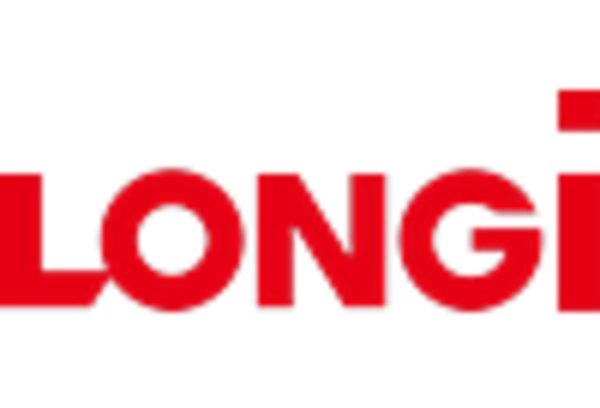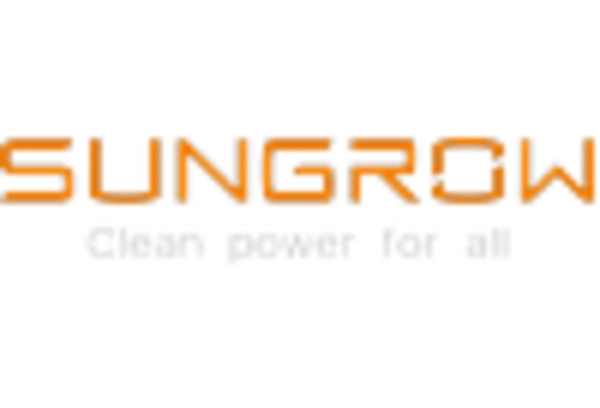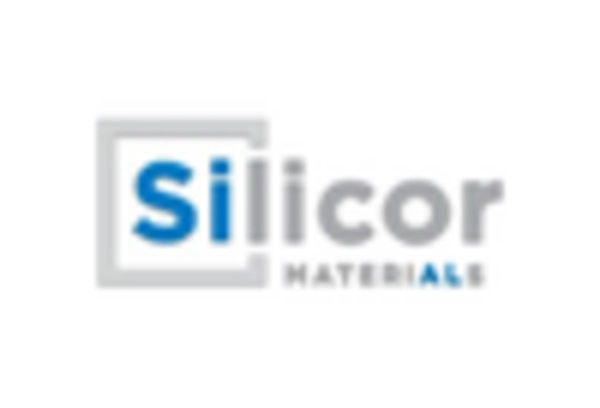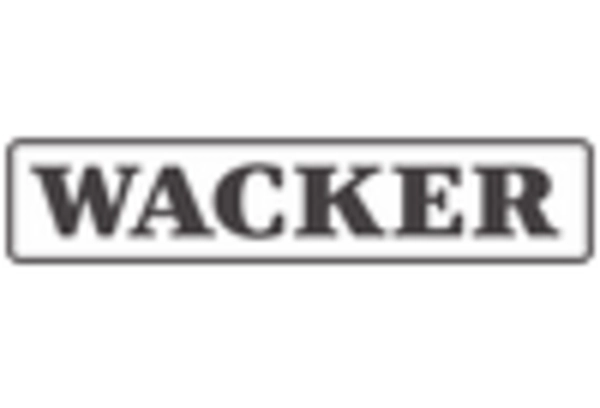Market Share
Polysilicon Market Share Analysis
In the dynamic Polysilicon Market, companies implement a variety of market share positioning strategies to distinguish themselves and secure a significant market presence. Here's a breakdown of key strategies adopted by players in the Polysilicon Market, presented in a paragraph with a pointer format:
High Purity and Quality Assurance:
Ensuring high purity levels and stringent quality control is foundational in the Polysilicon Market. Companies focus on maintaining the purity of their polysilicon to meet the exacting standards required for solar panels and semiconductor manufacturing. Rigorous quality assurance practices contribute to building trust among customers and establishing a positive market reputation for reliability. Cost Leadership and Operational Efficiency:
Achieving cost leadership is paramount. Companies optimize their production processes, enhance energy efficiency, and scale operations to reduce manufacturing costs. Cost-effective production allows companies to offer competitive pricing, attracting customers in a market where cost considerations are significant. Global Market Expansion:
Expanding market presence globally is a strategic imperative. Companies explore opportunities in emerging markets and adapt to the changing demand for polysilicon in solar energy and electronics manufacturing. Adapting to diverse regulatory environments, understanding regional market dynamics, and establishing a strong global presence contribute to market share growth. Technological Advancements and Research Development:
Continuous investment in research and development is critical for technological innovations in polysilicon production. Companies focus on improving manufacturing processes, increasing efficiency, and developing advanced technologies. Staying at the forefront of technological advancements positions companies as leaders, attracting customers seeking cutting-edge and high-performance polysilicon. Strategic Partnerships and Collaborations:
Forming strategic alliances with solar panel manufacturers, semiconductor companies, and industry stakeholders enhances the overall value chain. Collaborations can lead to improved market penetration, expanded distribution networks, and shared resources. Partnerships contribute to a more robust and efficient market presence, fostering increased market share. Brand Building and Marketing:
Establishing a strong brand presence is crucial for success in the Polysilicon Market. Effective marketing through various channels helps create brand awareness. Building a brand associated with reliability, quality, and technological innovation positively influences customer perception, fostering brand loyalty and differentiation. Customer Relationship Management (CRM):
Developing and maintaining strong relationships with customers is a long-term strategy. Providing excellent customer support, technical assistance, and responsiveness contribute to building trust. Understanding customer needs and offering tailored solutions enhance overall customer satisfaction and loyalty in the polysilicon market. Supply Chain Optimization:
Optimizing the supply chain from raw material procurement to polysilicon delivery is a strategic focus. Companies aim for efficiency, cost reduction, and timely delivery to maintain competitiveness. Efficient supply chain management supports sustained market share growth by ensuring reliability and responsiveness to customer demands. Sustainability Initiatives:
Embracing environmentally sustainable practices is increasingly important for companies in the Polysilicon Market. Developing eco-friendly production processes, utilizing renewable energy sources, and promoting sustainable use of polysilicon align with changing consumer preferences. Implementing sustainability initiatives not only enhances market positioning but also addresses the growing demand for environmentally responsible energy solutions. Capacity Expansion and Scalability:
Ensuring scalability and capacity expansion is essential to meet the growing demand for polysilicon. Companies invest in expanding production facilities, upgrading technology, and increasing overall production capabilities. Scalability allows companies to seize market opportunities and respond to the dynamic demands of the solar energy and semiconductor industries.
















Leave a Comment